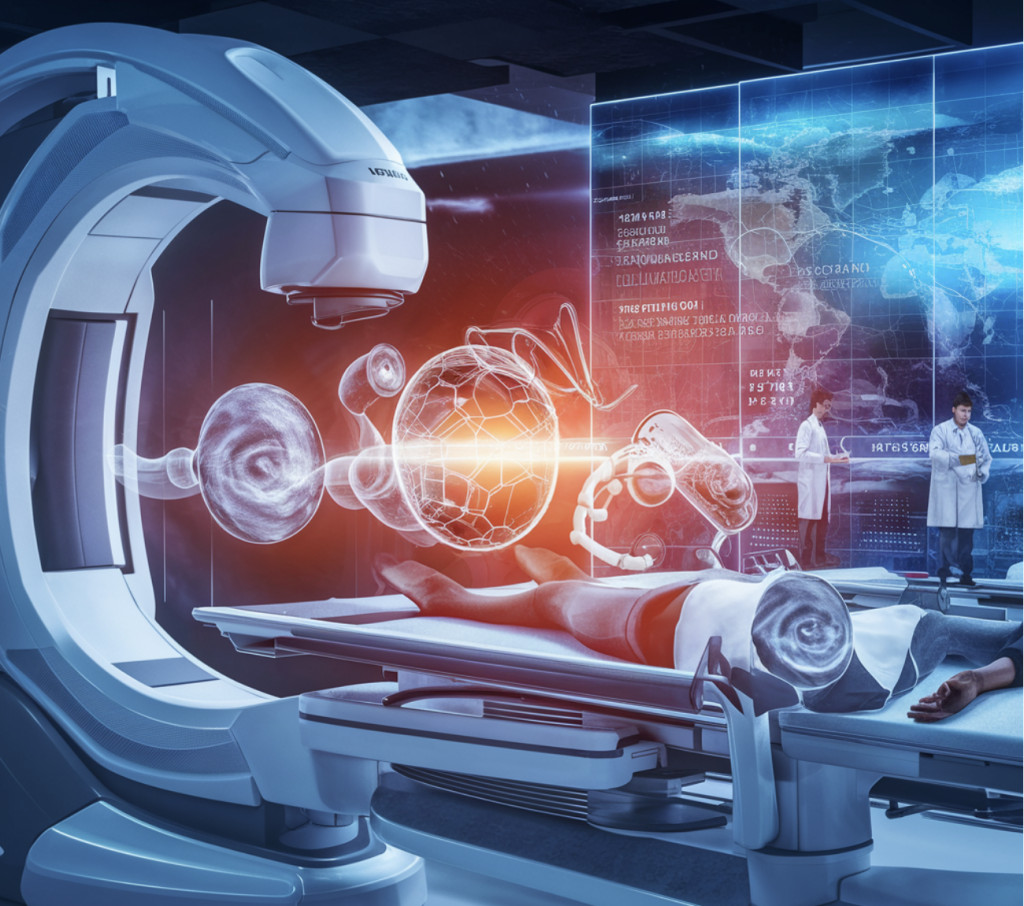The Role of AI in Medicine:
AI simulates human intelligence in machines and has significant applications in medicine. AI processes large datasets to identify patterns and build adaptive models, particularly in deep learning for medical image analysis, such as X-rays and MRIs. Multi-agent systems enhance distributed AI, enabling medical robots to assist in surgeries and patient care. Expert systems provide remote medical advice, which is crucial for those without access to specialists. AI also facilitates telemedicine, electronic health records, and decision support systems, making it an indispensable tool for efficient healthcare delivery.
AI and Computer Applications in Medicine:
Computers have significantly improved hospital management through applications like human resource management, digital patient records, and medical image processing. E-health and telemedicine are emerging fields integrating digital tools, such as computers and smartphones, to enhance healthcare delivery. AI, particularly through ML and DL, has advanced medical applications by automating complex tasks. ML algorithms learn from data to improve over time, while DL uses neural networks to handle large, complex datasets. These technologies are essential for developing intelligent systems in healthcare, providing accurate diagnostics and patient-oriented care.
Intelligent Medical Applications: AI in Healthcare:
AI has enabled the development of expert systems, like MYCIN and ONCOCIN, that simulate human expertise to diagnose and treat diseases. These systems rely on a domain knowledge base and an inference engine to solve specialized medical problems. AI is also revolutionizing Electronic Health Records (EHRs) by using techniques like RNN and NLP to analyze structured and unstructured data, aiding in risk prediction for conditions like hypertension and cardiac arrest. Additionally, AI is transforming drug discovery, improving accuracy, speed, and cost-effectiveness by applying deep learning models for drug design, toxicity prediction, and personalized medicine.
AI and Robotics in Medical Imaging and Surgery:
AI plays a transformative role in medical imaging by efficiently analyzing data from CT, MRI, and PET scans, which leads to more accurate diagnoses and better treatment decisions. Deep learning models can automatically identify disease characteristics in medical images, facilitating the early detection of conditions such as cancer and Alzheimer’s. In robotic surgery, AI-powered systems like the Da Vinci robot enable surgeons to perform highly precise, minimally invasive procedures across various medical fields. Surgeons operate these systems remotely, which offers advantages like quicker recovery times and reduced complications. AI’s capability to manage large datasets and support real-time decision-making is revolutionizing medical imaging and surgical practices.
Distributed AI and Emerging Trends in Medicine:
Distributed Artificial Intelligence (DAI) systems, including Multiagent Systems (MAS), enable intelligent, cooperative decision-making across geographically distributed agents, making them well-suited for healthcare. MAS can manage dynamic, distributed data, support remote expert collaboration, and are applied in rural child care and chronic patient monitoring. Emerging AI trends in medicine include Federated Machine Learning (FML), which allows collaborative model training without sharing sensitive data, and Generalist Medical AI (GMAI), which integrates diverse medical data for comprehensive diagnostics. AutoML further optimizes AI model development, enhancing healthcare efficiency and reducing costs.
Conclusions and Future Research Directions in AI for Medicine:
AI is revolutionizing medicine by automating tasks like medical image analysis and enhancing precision in robot-assisted surgeries. However, challenges persist, including data standardization, security, and privacy in sharing patient information. Medical imaging research faces hurdles in data organization, accurate labeling, and processing efficiency. The development of fully autonomous medical robots requires overcoming algorithmic and ethical obstacles. Multiagent systems offer promising solutions for distributed healthcare, but issues like decentralized control and the legal exchange of patient information still need to be solved. Further research is required to address these challenges and advance AI’s role in healthcare.
Sources:
https://www.researchgate.net/publication/380518828_Artificial_Intelligence_in_Medicine
The post Transformative Impact of Artificial Intelligence AI on Medicine: From Imaging to Distributed Healthcare Systems appeared first on MarkTechPost.
Source: Read MoreÂ

